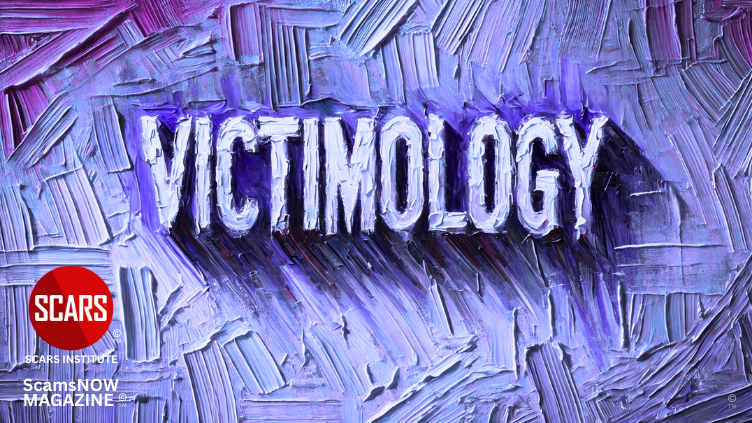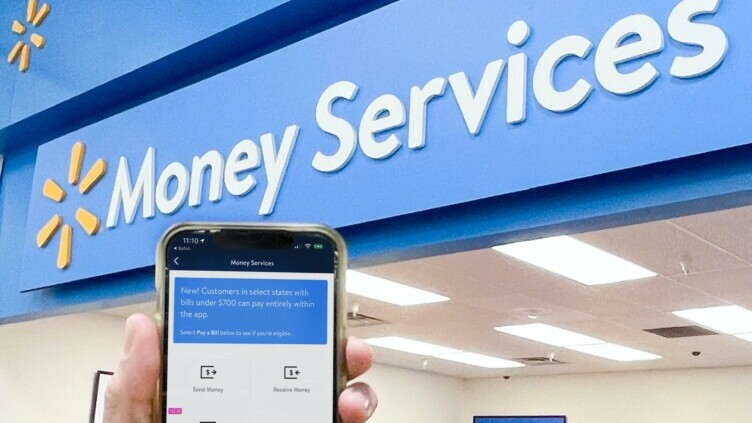Walmart Facilitated Scams According To The FTC
By FTC & SCARS Editorial Team
Walmart: FTC Files Amended Complaint Charging that Walmart Facilitated Scams Through Its Money Transfer Services That Fleeced Customers Out of Hundreds of Millions
The Federal Trade Commission filed an amended complaint against Walmart – bolstering the agency’s case that Walmart allowed its money transfer services to be used by scammers, who fleeced consumers out of hundreds of millions of dollars.
The FTC filed the amended complaint in the U.S. District Court for the Northern District of Illinois against Walmart, following the court’s March 27, 2023 ruling on the FTC’s initial complaint. The amended complaint adds further details on Walmart’s alleged violations of the Telemarketing Sales Rule, including the Rule’s ban on the use of cash-to-cash money transfers in any telemarketing transaction.
According to the amended complaint, Walmart for years turned a blind eye while scammers took advantage of its failure to properly secure the money transfer services offered at Walmart stores. Walmart did not properly train its employees, failed to warn customers, and used procedures that allowed scammers to cash out at its stores, according to the FTC’s complaint.
Walmart Money transfers are frequently used by fraudsters across a wide variety of scams because they are nearly impossible to retrieve after the money has been picked up. The amended complaint cites numerous instances in which scammers relied on Walmart money transfers as a primary way to receive payments, including in telemarketing schemes such as sweepstakes scams, advance-fee loan scams, IRS impersonation schemes, relative-in-need “grandparent” scams, and others.
The FTC’s investigation of Walmart’s money transfer practices showed, according to the complaint, that Walmart knew about the role money transfer services play in fraud and telemarketing schemes. Despite that, the company’s money transfer services harmed consumers in numerous ways, including:
- Walmart allowed the payout of transfers with characteristics of fraud;
- Walmart had no anti-fraud policy or an ineffective, poorly enforced policy;
- Allowing cash pickups for large payments;
- Walmart did not provide warnings to prevent consumers from sending payments related to scams;
- Walmart failed to effectively train or retrain staff;
- Walmart allowed money transfers to be used for telemarketing purchases that violate the Telemarketing Sales Rule.
The Commission vote to authorize staff to file the amended complaint in the U.S. District Court for the Northern District of Illinois was 3-0.
SCARS Analysis: Walmart
The Federal Trade Commission’s (FTC) Amended Complaint against Walmart over money transfer scams is significant because it is the first time that the FTC has filed suit against a major retailer for allegedly facilitating fraud through its money transfer services.
- The FTC Walmart complaint alleges that Walmart knew or should have known that its money transfer services were being used by scammers to defraud consumers, but failed to take adequate steps to prevent or stop the fraud.
- The complaint also alleges that Walmart profited from the fraud by charging consumers high fees for its money transfer services. The FTC is seeking monetary damages, injunctive relief, and other remedies to stop Walmart from continuing to facilitate fraud through its money transfer services.
- The complaint is significant because it could have a chilling effect on other retailers that offer money transfer services. It could also lead to increased scrutiny of the money transfer industry by regulators. The complaint could also help to raise awareness of the risks of money transfer scams among consumers.
If the FTC is successful in its lawsuit, it could set a precedent for other lawsuits against retailers that facilitate fraud through their money transfer services. It could also lead to changes in the way that retailers regulate and monitor their money transfer services.
The complaint is also significant because it comes at a time when the FTC is increasingly focused on combating fraud. In recent years, the FTC has filed a number of lawsuits against companies that have allegedly engaged in fraudulent practices. The FTC has also issued a very large number of consumer alerts warning about common fraud schemes.
The FTC’s lawsuit against Walmart is a sign that the agency is serious about cracking down on fraud. It is also a reminder to consumers to be careful when using money transfer services.
The Impact on Walmart
The impact on Walmart, if the Federal Trade Commission’s Amended Complaint is successful, could be very significant.
For Walmart, the potential impact could include:
- Monetary damages: The FTC is seeking monetary damages from Walmart, which could be significant.
- Injunctive relief: The FTC is also seeking injunctive relief, which could require Walmart to make changes to its money transfer services. This could include, for example, requiring Walmart to implement stricter fraud prevention measures or to provide more information to consumers about the risks of money transfer scams.
- Damage to reputation: The lawsuit could also damage Walmart’s reputation, which could lead to lost customers and sales.
For consumers, the potential impact could include:
- Restitution: If the FTC is successful, it could order Walmart to provide restitution to consumers who have been defrauded through Walmart’s money transfer services.
- Increased protection from fraud: The lawsuit could lead to increased protection for consumers from money transfer scams. This could include, for example, stricter regulations on the money transfer industry or more public awareness about the risks of money transfer scams.
It is important to note that the FTC’s lawsuit is still in its early stages, and it is not yet clear what the outcome will be. However, the potential impact on Walmart and consumers could be significant as we have seen in past complaints against Western Union and MoneyGram.
Consumer Advice
If you are considering using a money transfer service, be sure to do your research and make sure that the company is reputable. You should also be aware of the risks of fraud and take steps to protect yourself.
Here are some additional things that consumers can do to protect themselves from money transfer scams:
- Do your research: Before using a money transfer service, be sure to do your research and make sure that the company is reputable. You can check with the Better Business Bureau or with consumer protection agencies. Scammers have created fake money transfer companies, as well as imitated real money transfer services.
- Be wary of unsolicited offers: If you receive an unsolicited offer for a money transfer service, be wary. Scammers often use unsolicited offers to target victims.
- Ask questions: If you are considering using a money transfer service, be sure to ask questions about the company’s policies and procedures. You should also ask about the fees that the company charges.
- Use caution with wire transfers: Wire transfers are often used in money transfer scams. If you must use a wire transfer, be sure to use a reputable company or bank and to verify the recipient’s information before sending the money.
- Be aware of the risks: Money transfer scams can be very costly. If you think you may have been a victim of a money transfer scam, contact your bank or credit card company immediately. You should also file a complaint with the FTC.
-/ 30 /-
What do you think about this?
Please share your thoughts in a comment below!
More ScamsNOW.com Articles
-/ 30 /-
What do you think about this?
Please share your thoughts in a comment above!
SCARS LINKS: AgainstScams.org RomanceScamsNOW.com ContraEstafas.org ScammerPhotos.com Anyscam.com ScamsNOW.com
reporting.AgainstScams.org support.AgainstScams.org membership.AgainstScams.org donate.AgainstScams.org shop.AgainstScams.org
youtube.AgainstScams.org linkedin.AgainstScams.org facebook.AgainstScams.org
ARTICLE RATING
TABLE OF CONTENTS
CATEGORIES
MOST POPULAR COMMENTED ARTICLES
POPULAR ARTICLES
U.S. & Canada Suicide Lifeline 988
![NavyLogo@4x-81[1]](https://scamsnow.com/wp-content/uploads/2025/04/NavyLogo@4x-811.png)
ARTICLE META
WHAT PEOPLE ARE TALKING ABOUT LATEST SITE COMMENTS
See Comments for this Article at the Bottom of the Page
on Transference And Emotional Danger After The Scam – 2024: “Thank you for the kind but firm reminder that the person in the stolen profile photo has their own life.…” Jul 9, 01:26
on ‘Mental Defeat’ – The Unique Condition Of Giving Up – 2024: “Thank you for another great article. I can see from this article that mental defeat would be debilitating to a…” Jul 9, 00:49
on Trust: Romance Scams Betrayal And Scam Victims – 2024: “This provided valuable insight that I can identify with” Jul 8, 16:44
on A Scam Victim in Extreme Distress – Stopping the Pain – 2024: “Your trust issues are very understandable. We are very sorry this happened to you. We suggest that you contact an…” Jul 8, 14:42
on A Scam Victim in Extreme Distress – Stopping the Pain – 2024: “My online counselors advised me to check myself in. I went to the hospital because I was suicidal. After I…” Jul 8, 13:44
on Scam Victim Catastrophizing Making Recovery Difficult 2024: “Excellent article on catastrophizing. I can understand how this could take a person down a rabbit warren of never ending…” Jul 8, 12:12
on The Self-Pity Trap & How To Overcome It – 2023 – [UPDATED 2025]: “I am not in the habit of feeling sorry for myself. After the deception, although it was not easy at…” Jul 8, 11:49
on Pride – A Dual Edged Sword For Scam Victims – 2023 [UPDATD 2024]: “Looking back over my life I have seen how pride has impacted me both positively and negatively. However the negative…” Jul 8, 09:08
on The Self-Pity Trap & How To Overcome It – 2023 – [UPDATED 2025]: “I felt self-pity while the enormity of my financial loss washed over me like a tsunami. The self-pity lasted only…” Jul 7, 18:55
on The Uniqueness Of Scam Victims Or Fraud Victims – 2024: “unfortunately all true. It is highly stressful dealing with the aftermath. I am being sued for the money I borrowed…” Jul 6, 12:50
on Scam Victims & Mental Health Blaming – 2023 [UPDATED 2025]: “For most of my life words have defeated me, made me feel insignificant, unwanted, unneeded. For this reason it is…” Jul 5, 13:36
on Substance Abuse Susceptibility And Scam Victims – 2024: “It is understandable how some would feel that alcohol or substance abuse would be helpful in handling their feelings after…” Jul 1, 20:36
on Scam Victims Use Work To Avoid Healing: “The last 6 years have been the most difficult of my life. The pandemic, having both parents in the hospital…” Jun 29, 18:38
on Entitlement Mentality And How Scam Victims Often Lose Their Path To Recovery – 2024: “Thank you for this discussion of entitlement. I can see from the descriptions listed that I have not felt entitlement.…” Jun 29, 18:22
on Samurai Wisdom and Rituals for Clearing the Mind After Scam Trauma – 2025 – [VIDEOS]: “A great guide on how to move forward in our recovery process with a calm mind, cleansed on an ongoing…” Jun 28, 07:34
on Delayed Gratification and Patience in Scam Victim Recovery – 2025 – [VIDEOS]: “We want to recover quickly and… we make new mistakes. How not to speed up the recovery process, how to…” Jun 28, 06:41
on The Unique Injury Of Betrayal Trauma On Scam Victims – 2024: “Primarily because you did not see it coming” Jun 27, 23:57
on Changes In A Scam Victim’s Life: “I really detest the way my trust in others has been affected by the scamming I went through. I used…” Jun 27, 14:47
on The Unique Injury Of Betrayal Trauma On Scam Victims – 2024: “Betrayal Trauma is the worst feeling ever. Why does it seem so much worse when a scammer does that to…” Jun 27, 14:34
Important Information for New Scam Victims
Please visit www.ScamVictimsSupport.org – a SCARS Website for New Scam Victims & Sextortion Victims
SCARS Institute now offers a free recovery program at www.SCARSeducation.org
Please visit www.ScamPsychology.org – to more fully understand the psychological concepts involved in scams and scam victim recovery
If you are looking for local trauma counselors, please visit counseling.AgainstScams.org
If you need to speak with someone now, you can dial 988 or find phone numbers for crisis hotlines all around the world here: www.opencounseling.com/suicide-hotlines
Statement About Victim Blaming
Some of our articles discuss various aspects of victims. This is both about better understanding victims (the science of victimology) and their behaviors and psychology. This helps us to educate victims/survivors about why these crimes happened and not to blame themselves, better develop recovery programs, and help victims avoid scams in the future. At times, this may sound like blaming the victim, but it does not blame scam victims; we are simply explaining the hows and whys of the experience victims have.
These articles, about the Psychology of Scams or Victim Psychology – meaning that all humans have psychological or cognitive characteristics in common that can either be exploited or work against us – help us all to understand the unique challenges victims face before, during, and after scams, fraud, or cybercrimes. These sometimes talk about some of the vulnerabilities the scammers exploit. Victims rarely have control of them or are even aware of them, until something like a scam happens, and then they can learn how their mind works and how to overcome these mechanisms.
Articles like these help victims and others understand these processes and how to help prevent them from being exploited again or to help them recover more easily by understanding their post-scam behaviors. Learn more about the Psychology of Scams at www.ScamPsychology.org
SCARS INSTITUTE RESOURCES:
If You Have Been Victimized By A Scam Or Cybercrime
♦ If you are a victim of scams, go to www.ScamVictimsSupport.org for real knowledge and help
♦ Enroll in SCARS Scam Survivor’s School now at www.SCARSeducation.org
♦ To report criminals, visit https://reporting.AgainstScams.org – we will NEVER give your data to money recovery companies like some do!
♦ Follow us and find our podcasts, webinars, and helpful videos on YouTube: https://www.youtube.com/@RomancescamsNowcom
♦ Learn about the Psychology of Scams at www.ScamPsychology.org
♦ Dig deeper into the reality of scams, fraud, and cybercrime at www.ScamsNOW.com and www.RomanceScamsNOW.com
♦ Scam Survivor’s Stories: www.ScamSurvivorStories.org
♦ For Scam Victim Advocates visit www.ScamVictimsAdvocates.org
♦ See more scammer photos on www.ScammerPhotos.com
You can also find the SCARS Institute on Facebook, Instagram, X, LinkedIn, and TruthSocial
Psychology Disclaimer:
All articles about psychology and the human brain on this website are for information & education only
The information provided in this and other SCARS articles are intended for educational and self-help purposes only and should not be construed as a substitute for professional therapy or counseling.
Note about Mindfulness: Mindfulness practices have the potential to create psychological distress for some individuals. Please consult a mental health professional or experienced meditation instructor for guidance should you encounter difficulties.
While any self-help techniques outlined herein may be beneficial for scam victims seeking to recover from their experience and move towards recovery, it is important to consult with a qualified mental health professional before initiating any course of action. Each individual’s experience and needs are unique, and what works for one person may not be suitable for another.
Additionally, any approach may not be appropriate for individuals with certain pre-existing mental health conditions or trauma histories. It is advisable to seek guidance from a licensed therapist or counselor who can provide personalized support, guidance, and treatment tailored to your specific needs.
If you are experiencing significant distress or emotional difficulties related to a scam or other traumatic event, please consult your doctor or mental health provider for appropriate care and support.
Also read our SCARS Institute Statement about Professional Care for Scam Victims – click here
If you are in crisis, feeling desperate, or in despair, please call 988 or your local crisis hotline.
More ScamsNOW.com Articles
A Question of Trust
At the SCARS Institute, we invite you to do your own research on the topics we speak about and publish. Our team investigates the subject being discussed, especially when it comes to understanding the scam victims-survivors’ experience. You can do Google searches, but in many cases, you will have to wade through scientific papers and studies. However, remember that biases and perspectives matter and influence the outcome. Regardless, we encourage you to explore these topics as thoroughly as you can for your own awareness.
















![scars-institute[1]](https://scamsnow.com/wp-content/uploads/2025/04/scars-institute1.png)
![niprc1.png1_-150×1501-1[1]](https://scamsnow.com/wp-content/uploads/2025/04/niprc1.png1_-150x1501-11.webp)
